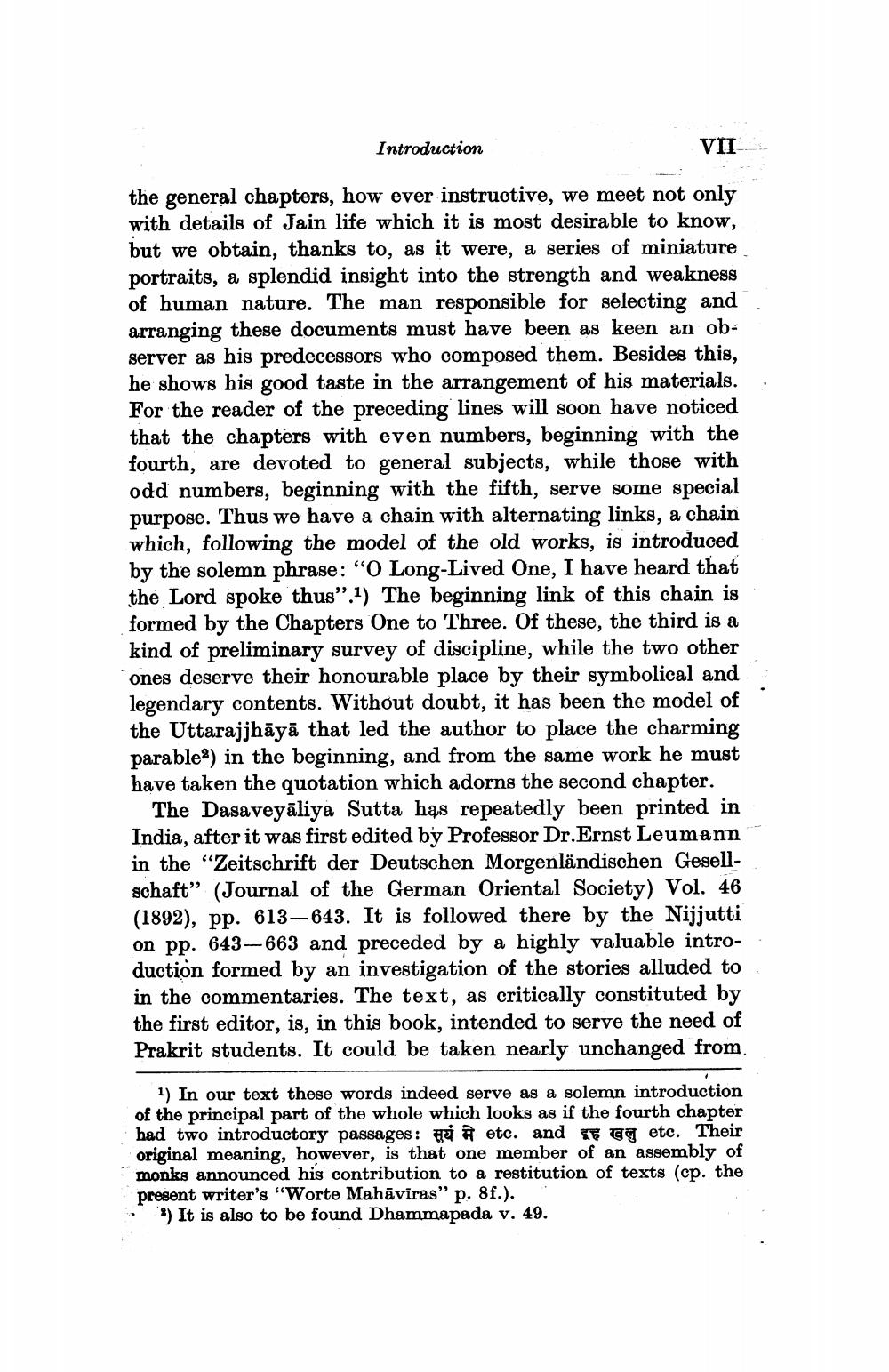Book Title: Dasveyaliya Sutta Author(s): Ernst Leumann, Walther Schubrin Publisher: Anandji Kalyanji Pedhi View full book textPage 8
________________ Introduction VII the general chapters, how ever instructive, we meet not only with details of Jain life which it is most desirable to know, but we obtain, thanks to, as it were, a series of miniature portraits, a splendid insight into the strength and weakness of human nature. The man responsible for selecting and arranging these documents must have been as keen an observer as his predecessors who composed them. Besides this, he shows his good taste in the arrangement of his materials. For the reader of the preceding lines will soon have noticed that the chapters with even numbers, beginning with the fourth, are devoted to general subjects, while those with odd numbers, beginning with the fifth, serve some special purpose. Thus we have a chain with alternating links, a chain which, following the model of the old works, is introduced by the solemn phrase: "O Long-Lived One, I have heard that the Lord spoke thus”.1) The beginning link of this chain is formed by the Chapters One to Three. Of these, the third is a kind of preliminary survey of discipline, while the two other ones deserve their honourable place by their symbolical and legendary contents. Without doubt, it has been the model of the Uttarajjhāyā that led the author to place the charming parable%) in the beginning, and from the same work he must have taken the quotation which adorns the second chapter. The Dasaveyaliya Sutta has repeatedly been printed in India, after it was first edited by Professor Dr. Ernst Leumann in the "Zeitschrift der Deutschen Morgenländischen Gesellschaft” (Journal of the German Oriental Society) Vol. 46 (1892), pp. 613–643. It is followed there by the Nijjutti on pp. 643-663 and preceded by a highly valuable introduction formed by an investigation of the stories alluded to in the commentaries. The text, as critically constituted by the first editor, is, in this book, intended to serve the need of Prakrit students. It could be taken nearly unchanged from 1) In our text these words indeed serve as a solemn introduction of the principal part of the whole which looks as if the fourth chapter had two introductory passages: # etc. and F C etc. Their original meaning, however, is that one member of an assembly of monks announced his contribution to a restitution of texts (cp. the present writer's "Worte Mahāviras" p. 8f.). a) It is also to be found Dhammapada v. 49.Page Navigation
1 ... 6 7 8 9 10 11 12 13 14 15 16 17 18 19 20 21 22 23 24 25 26 27 28 29 30 31 32 33 34 35 36 37 38 39 40 41 42 43 44 45 46 47 48 49 50 51 52 53 54 55 56 57 58 59 60 61 62 63 64 65 66 67 68 69 70 71 72 73 74 75 76 77 78 79 80 81 82 ... 142
